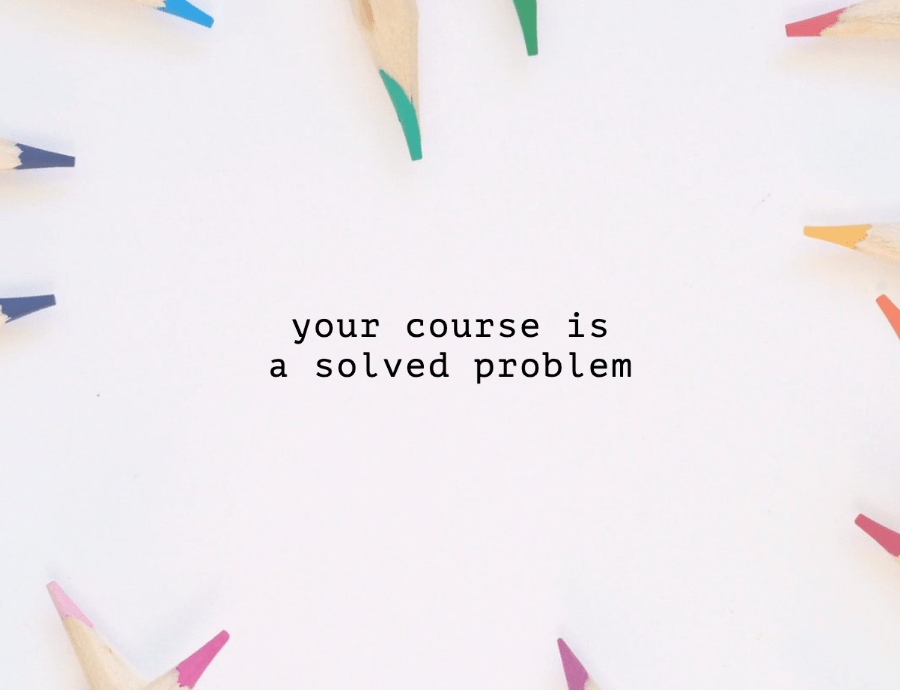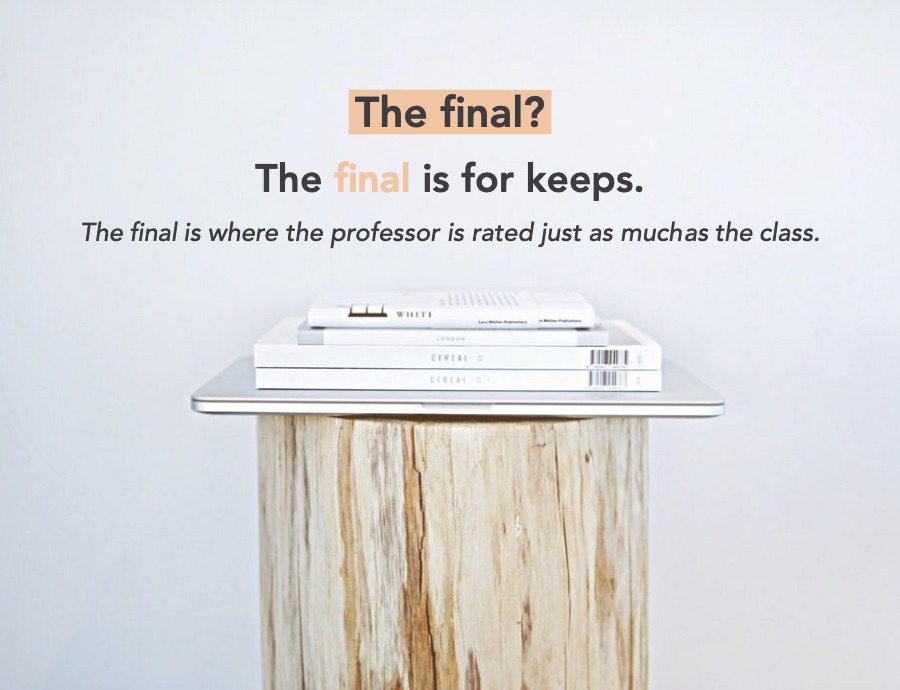First year students spend a lot of time talking to other first year students. That’s a good thing! They get to share their experiences, realize they’re not alone, even help each other understand things they didn’t before – or help each other just relax. Which is a massively undervalued part of a proper study schedule. Turning your brain off for a bit helps it work better when it’s on. Try to work 24 hours a day and soon you’ll be effectively working none of them, burned brain staring through bloodshot eyes at increasingly nonsensical solutions.
But there can be a problem when a first-year student ONLY talks to other first year students. Instead of commiserating about how hard they find a course, they can end up reinforcing how hard they think the course is, amplifying their worries until they believe some subjects are truly impossible. Then they sort of psychologically surrender to the course instead of trying to do better. Which was their dark and hidden motivation all along, trying to find an excuse to stop doing all this hard work. There’s no point working on something that’s impossible.
But the course isn’t impossible! The course doesn’t want your surrender! That course knows that it can be passed, even aced, because it’s been aced by thousands of students before you. Most first year courses have existed for quite a long time. Even new courses are often built from bits and pieces of previous courses, because professors don’t enjoy filling up blank pages any more than most students. And even if the stars align and a new course is created, the physics and engineering on that course has existed for a very long time.
What does this mean for you? It means your course is a solved problem. Countless people have already solved it! Most of them even find it easy now, because they know about all the things that come afterwards. So take advantage of their expertise! You can find tutors, teachers, even just online notes which know all about every problem you’ll face because they’ve faced — and defeated! – them before.
Because they’re not struggling along inside the course, they can see the exam from the outside. They can see the patterns which come up year after year. They can see the problems which seemed so insurmountable the first time they say them. They can see the things that just never came up and you don’t need to know. They can see the simple steps they used, or even the better steps they wish they’d known back then and share them with you for a better first time at that exam.
But there can be a problem when a first-year student ONLY talks to other first year students. Instead of commiserating about how hard they find a course, they can end up reinforcing how hard they think the course is, amplifying their worries until they believe some subjects are truly impossible. Then they sort of psychologically surrender to the course instead of trying to do better. Which was their dark and hidden motivation all along, trying to find an excuse to stop doing all this hard work. There’s no point working on something that’s impossible.
Your course wasn’t born yesterday.
But the course isn’t impossible! The course doesn’t want your surrender! That course knows that it can be passed, even aced, because it’s been aced by thousands of students before you. Most first year courses have existed for quite a long time. Even new courses are often built from bits and pieces of previous courses, because professors don’t enjoy filling up blank pages any more than most students. And even if the stars align and a new course is created, the physics and engineering on that course has existed for a very long time.
What does this mean for you? It means your course is a solved problem. Countless people have already solved it! Most of them even find it easy now, because they know about all the things that come afterwards. So take advantage of their expertise! You can find tutors, teachers, even just online notes which know all about every problem you’ll face because they’ve faced — and defeated! – them before.
Because they’re not struggling along inside the course, they can see the exam from the outside. They can see the patterns which come up year after year. They can see the problems which seemed so insurmountable the first time they say them. They can see the things that just never came up and you don’t need to know. They can see the simple steps they used, or even the better steps they wish they’d known back then and share them with you for a better first time at that exam.








